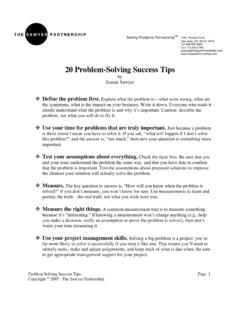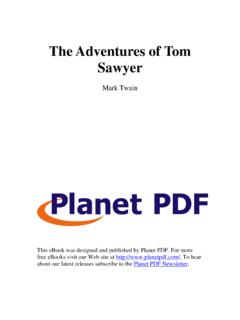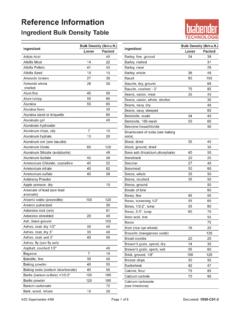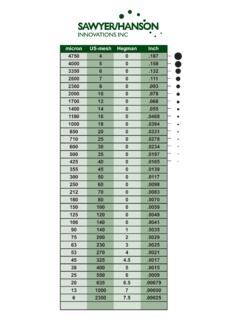Transcription of How to Select the Correct Hydraulic Oil for Your Machine ...
1 How to Select the Correct Hydraulic Oil for Your OR How to Make Sure the Hydraulic Oil You Are Currently Using Is the Right One! By Brendan Casey Copyright 2010 Brendan Casey PLEASE READ THIS FIRST! Thank you for investing in this report and video. To get the most from it, I recommend you start by reading the report from the beginning, then pausing to watch the video where directed. The video plays in Windows Media Player 9 or higher. If this program is not already installed on your computer, the current version can be downloaded from: If you are a Mac user, you can watch the video by downloading the Flip4 Mac WMV player for Quicktime: A transcript of the video dialogue is included in the Appendix accompanying this report.
2 So if for some reason you have trouble understanding the dialogue on the video, you can refer to this transcript for clarification. Prior to watching the video, be sure to read the introduction and notes on page 17. Once you ve studied this report and video a couple of times, you ll be equipped to apply this know-how to Select the Correct Hydraulic oil for your or to check the oil you are currently using is the right one! Yours for better hydraulics knowledge, Brendan Casey Copyright 2010 Brendan Casey 2 Table of Contents Why You Need to Know Why Hydraulic Oil is Different From Other The Benefit of Multigrade The Problem with Multigrade Engine The Controversy About Detergent and Zinc - and How to Deal With Why You Should Avoid Automatic Transmission The Truth about Biodegradable Hydraulic Oil Type Selection Video.
3 How to Select the Correct Oil How to Monitor the Condition of the Further Copyright 2010 Brendan Casey 3 Why You Need to Know This In a recent issue of Hydraulics and Pneumatics magazine, there was a case-study about a new Hydraulic excavator which had been shipped to site with the wrong type of Hydraulic oil1. The consequence of this was four pump failures - at a cost of $20,000 each, three swing motor failures and two track drive motor failures all within the first 27 months of operation. In fact, the total cost of failures - including downtime, amounted to $193,872 over 2-1/4 years!
4 While the Hydraulic equipment you re responsible for may not be on the same scale, the principle is the same: if the Hydraulic system is not filled with the Correct oil: it won t perform like it should; and it won t last like it should. Why Hydraulic Oil is Different From Other Lubes Hydraulic oil is different from other lubes. Not only is it a lubricant, it s also the means by which power is transferred throughout the Hydraulic system. So it s a lubricant and a power transfer device. This dual role makes it unique. To be an effective and reliable lubricant, Hydraulic oil must possess properties similar to most other lubes.
5 These include: foaming resistance and air release; thermal, oxidation and hydrolytic stability; anti-wear performance; filterability; demulsibility; rust and corrosion inhibition; and viscosity in respect of its influence on lubricating film thickness which is critical for maximum service life of Hydraulic components. To be most efficient in its role as a power transfer device, Hydraulic oil needs high bulk modulus (high resistance to reduction in volume under pressure) and high viscosity index (low rate of change in viscosity with temperature). As an analogy, consider the tension on a vee belt.
6 If it is out of adjustment, the belt will slip. The result is a higher percentage of input power wasted to heat. This means less power is available at the output to do useful work. In other words, the drive becomes less efficient. A similar situation can occur with Hydraulic oil. Change in its bulk modulus and/or viscosity can affect the efficiency with which power is transferred in the Hydraulic system. The perfect Hydraulic fluid for transmission of power would be infinitely stiff (incompressible) and have a constant viscosity of around 25 centistokes regardless of temperature see exhibit 1.
7 Such a fluid does not exist. 1 Hydraulics and Pneumatics, December 2009, pages 35-37. Copyright 2010 Brendan Casey 4 Exhibit 1. Temperature/viscosity diagram for the perfect Hydraulic fluid. Viscosity flat-lines at 25 centistokes regardless of temperature. The Benefit of Multigrade Oil Bulk modulus is an inherent property of the base oil and can t be improved with additives. But viscosity index (VI) can be improved by using high VI base stocks such as synthetics and/or by adding polymers called Viscosity Index Improvers to the formulation.
8 Viscosity Index Improvers were first used to make multigrade engine oils in the 1940s. These days, this common and well-tested technology is used to make high VI (multigrade) oils for other applications, including automotive transmission fluids and manual transmission gear oils. However, the VI improvers used in oils for the above applications are not typically shear stable when used in modern Hydraulic systems. But recent advances in VI improver technology means that mineral Hydraulic oils with a shear-stable viscosity index in the 150 to 200 range are now commercially available.
9 The most common reason for using a high VI or multigrade Hydraulic oil is to cover wide differences in ambient temperatures between winter and summer, and thus eliminate the need for seasonal oil changes. But there is another case for considering the use of a high VI or multigrade Hydraulic oil. Within the allowable extremes of viscosity required to maintain adequate lubricating film thickness for Hydraulic components, there s a narrower viscosity range where power losses are minimized, and therefore, power transfer is maximized. By maintaining the oil s viscosity in this optimum range, Machine cycle times are faster (productivity is increased) and power consumption (diesel or electricity) is reduced.
10 So using a high VI or multigrade oil means the Hydraulic system will remain in its power transmission sweet spot across a wider operating temperature range. Copyright 2010 Brendan Casey 5 You could think of this as similar to installing an automatic-tensioner on the vee belt drive we talked about earlier to maintain optimum power transfer conditions. But based on simple cost/benefit analysis, if the cost to install the auto-tensioner was $200, we wouldn t spend this money unless we were satisfied we can recover this investment - plus an acceptable return, through savings attributable to more efficient power transfer and/or reduced maintenance costs.









